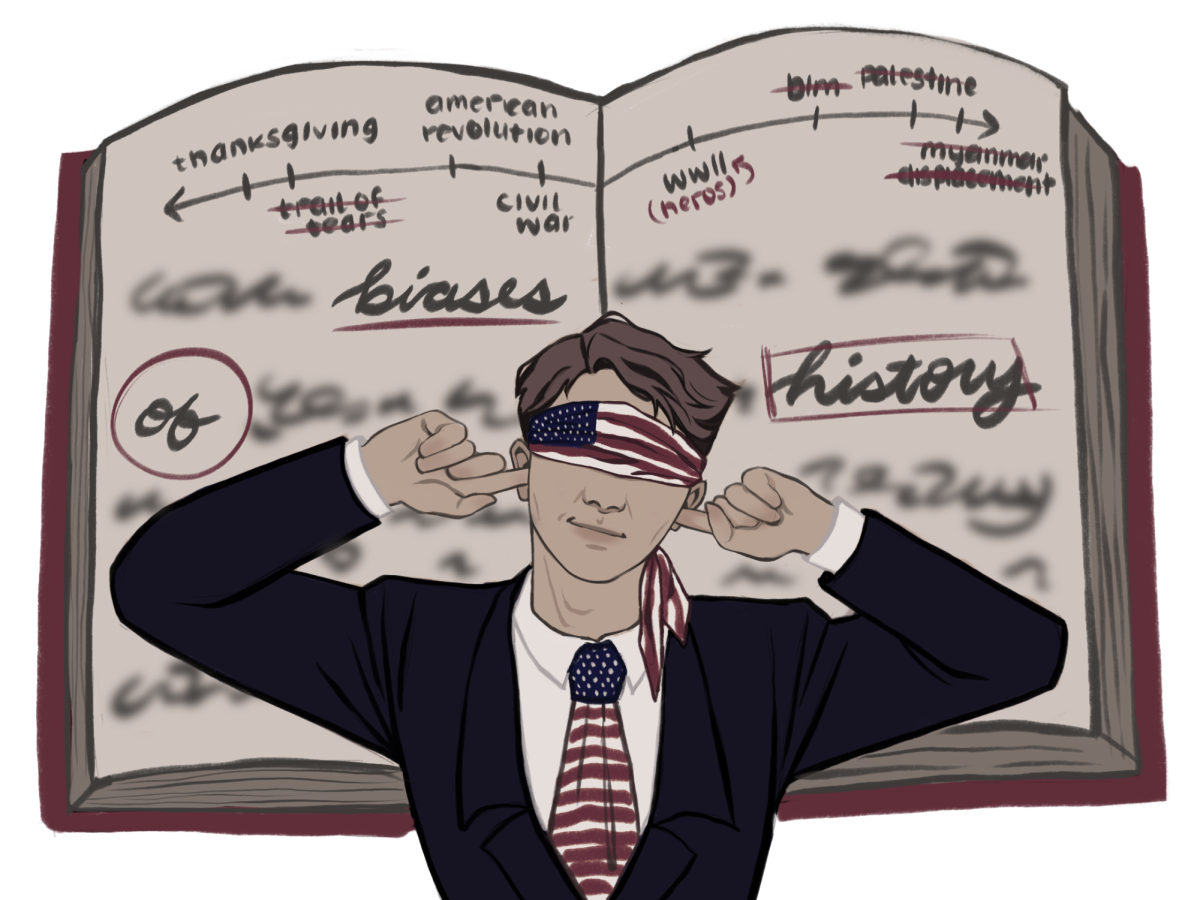History and learning about the past plays a significant role throughout society. Many aspects of history are relevant in current decision-making, whether politically, economically or socially. History is taught in schools, but often with an inaccurate approach and biased perspective, leaving students with an incomplete and sometimes false understanding of historical events.
The American School of Education acknowledged James Loewen for analyzing dozens of history textbooks for biases and inaccuracies. He frequently came across topics of the Civil War and inferred them to be completely misleading and incomplete, with no recognition of how the white supremacists created systems to disenfranchise Black voters. Thus, textbooks depict a subjective stance of the past, not portraying all aspects. Most of the history curriculums portray the “winning” side’s perspective, especially in Western culture, without recognizing marginalized groups.
According to “The Guardian,” an analysis found that specifically religious and private schools teach racially biased history and often whitewash topics of slavery and Black Lives Matter movements. This type of content spreads more harmful ideas and promotes the idea that one population is superior to another.
Historians and political analysts view history and identify the causes and effects as well as human casualties that occur because of the various political regimes. When a nation has committed a mistake in the past, it should not only acknowledge the mistake but rectify it. Simple admission does not justify past actions. People and nations must improve from past historical mistakes, but history has often repeated itself.
CNN reported one of the most prominent examples of lip service is how America recognized indigenous lands but failed to acknowledge the detrimental realities that occurred in the past with Native Americans being killed and forced to leave their land. Even if this recognition and acknowledgment has good intentions, it does not make up for the harmful actions taken in the past, nor does it absolve America of the current effects of colonialism on the indigenous population. But the current curriculum does not elaborate on the indigenous situation.
With the biases of history and the misconceptions that surround it, the present still continues to repeat history. When it comes to the colonization of Native Americans, the world still chooses to publicly watch the dehumanization, the occupation of indigenous lands and the displacement of huge populations. Similarly, Palestine has been experiencing an ongoing occupation by an illegal state for numerous decades, which is being funded by the United States, with no visible repercussions. The displacement of Rohingyans in Myanmar by an authoritative government power is another harsh reality of the world.
Many regions of the world have suffered atrocities, but the powers who control the narrative have created their own history, without providing truthful and justifiable claims.
History has always been told through a biased lens, with selective narratives. To be able to understand the true complexities of the past, it is important to go against the misconceptions that are ingrained into society. With education only depicting the perspectives of the “winners,” it directly undermines the voices and experiences of minorities.
Society has reached a point in time where it is necessary to transform and diversify the one-sided narrative that has been integrated into history curriculums. Creating this change allows for an accurate representation of the past and a clear step toward fostering an inclusive society that emphasizes recognition of marginalized groups. Changing the narrative is not just directed toward reshaping textbooks and school curriculums but about changing mindsets to be able to move past the misconceptions and understand the different perspectives. Breaking free from the limitations and preconceptions of the past will help ensure mistakes made in the past don’t happen again.


